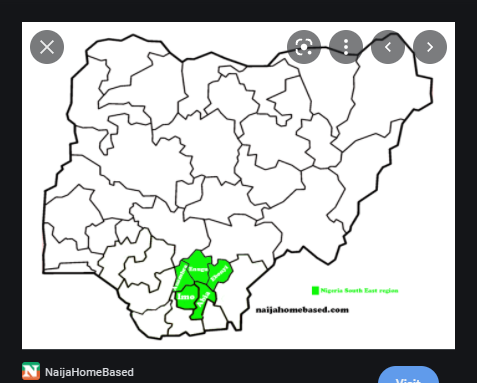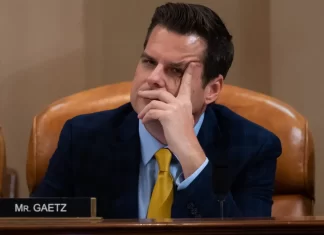South East traditional rulers also want Nnamdi Kanu released
By Jeph Ajobaju, Chief Copy Editor
South East traditional rulers have decried the militarisation of Igboland, saying they have watched with “utter dismay and sadness” the rapid deterioration of affairs, killings, property destruction, and general fearfulness.
They said across the five states in the zone and other Igbo speaking areas, there is a distinct feeling of disaffection, frustration and distrust.
A statement issued by the South East Council of Traditional Rulers (SECTR) also touched on various issues, including marginalisation, youth restiveness, and the need for a fair vote in the Anambra governorship election on November 6.
__________________________________________________________________
Related article:
Nnamdi Kanu’s trial: Southeast monarchs to send delegation
__________________________________________________________________
The statement was jointly signed by the Traditional Rulers Council Chairmen in four South East states, Joseph N. Nwabeke (Abia), L. O. C. Agubuzu (Enugu), Nnaemeka Achebe (Anambra), and E. C. Okeke (Imo).
It articulates their views as follows:
1. Deterioration of affairs
South East traditional rulers have watched with utter dismay and sadness the rapid deterioration of affairs, gruesome killings, destruction of properties, a general atmosphere of fear, and progressive militarisation of our home land.
There is a distinct feeling of disaffection, frustration and distrust, “all of which are alien to our nature and tradition as a people.”
2. Peaceful resolution of conflicts
Empirical facts and historical experience corroborate that it is an age-long character of Ndiigbo to resolve internal conflicts and disagreements peacefully through consultation and constructive engagement, and not by violence and physical conflict.
Consequently, our grief and deep concern have become more manifest and compounded due to the existential challenge that now befalls our homeland.
3. Conflicts in other zones
The South East is the latest of the six zones in the country to experience internal strife. We are mindful of the longstanding conflicts in the three zones in the North spearheaded by Boko Haram.
We are also mindful of the attacks on innocent persons and communities in the South East and South West by armed bandits in the guise of cattle herdsmen. Though presently calm, the South South had her share of turbulence and is presently under significant military presence.
4. Abuse of fundamental rights
These upheavals are a consequence of the deterioration in leadership at various levels of governance since the unfortunate incursion of our armed forces into the political governance of the country.
The Constitution foisted on the nation by the last military regime worsened the situation by concentrating power in the federal government to the detriment of the federating units.
This has resulted in the appropriation of most of the institutions of governance by one sub-national group, and the progressive denial of fundamental rights of justice, equity, and fairness to the rest of the populace.
5. Consequences of bad leadership
There is anger in the country stemming from the long running failure of leadership and manifesting in the abuse of time-honoured values, youth unemployment, hunger, injustice, blatant display of wealth in the midst of abject poverty, impunity among persons in positions of authority and, concomitantly, the violence that now prevails in the country.
This anger metamorphosed into the #EndSARS movement of last year, a peaceful protest by youths, which was unfortunately hijacked by miscreants.
6. Anambra Governorship ballot
Though no culprits have yet been apprehended by the law enforcement agencies, there is a distinct feeling that the recent upheaval in Anambra State appears to be connected with the governorship election on November 6.
That notwithstanding and, in comparison with other states with more sustained violence, but which held elections successfully, we are disappointed by the recent statement by the Attorney General of the Federation that the federal government may impose a state of emergency in Anambra State for the purpose of the election.
We see the unfortunate statement as another manifestation of the discrimination against Ndiigbo.
7. Marginalisation of Ndiigbo
The feeling of marginalisation by Ndiigbo in national affairs is very palpable in their belief that they have made due sacrifice with blood, sweat and tears towards the unity and development of the country.
Despite the near total carnage visited on our people during the Nigerian Civil War, and the consequent confiscation of their assets outside their homeland, they bounced back with uncanny determination and courage such that Igbo investments are the most dispersed around the country today compared to other ethnic nationalities.
8. Betrayal of Igbo youths
The strong feeling of unending betrayal, neglect, abandonment and hopelessness by our people should therefore be appreciated in the foregoing context.
Such feelings are understandably strongest amongst the Igbo youths who have little to show with their good education.
Their anger is not only directed against the federal and state governments, but also against Igbo leaders and royal fathers who, they feel, may have compromised themselves or ineffectively advocated for the rights of Ndiigbo in Nigeria.
9. Alaigbo leadership vacuum
The youth have a point, if the truth must be told. Indeed, it is the vacuum in leadership in Alaigbo that has given vent to the emergence of youth-oriented protest organisations, such as IPOB with its distinct popularity and followership.
This situation is not peculiar to Ndiigbo.
10. Need for peaceful protests
We believe in the United Nations Declaration of Human Rights, which Nigeria subscribes to and enshrined in her Constitution, and which guarantee basic rights and freedoms to all individuals and groups, including the right to protest.
Such protests and disagreements should be civil, non-violent, and within the provisions of the laws of the country. One’s attempt to assert one’s rights and freedoms should not constrain, impede, or compromise the rights and freedoms of others.
11. Need for statesmanship
The dire situation in the country calls for statesmanship and open and sincere dialogue in the search for compromises, not growing militarisation which may ultimately threaten the very existence of the country as has happened in other parts of the world.
Indeed, this is not a time to apportion blame, but one for statesmanship and mutual forgiveness and healing towards the evolution of a more loving nation.
12. Conditions for peace
To restore genuine peace and normalcy in the South East based on justice, equity, fairness, love, and mutual understanding and respect, we, as traditional fathers of Ndiigbo, call for the following:
A. All stakeholders in the entire cross section of Alaigbo to sheath their swords and let us rally together for mutual forgiveness and healing to reset our strategic agenda for engaging meaningfully with our fellow citizens in the other parts of the country.
Cutting our nose to spite our face does not help our present situation. It is senseless to destroy our homeland, or be an accessory to its destruction, in order to prove our marginalisation.
B. President Muhammadu Buhari to show sagacity, pragmatism, statesmanship, and fatherliness by causing IPOB to be de-proscribed as a terrorist organisation, and Nnamdi Kanu to be released from detention into the hands of Igbo traditional and religious leaders.
Buhari should also de-escalate the military presence in the South East as normalcy returns.
C. IPOB and its affiliate units, and other protest organisations in Alaigbo, to immediately stop all provocative rhetoric and actions that tend to promote violence, fear, or other unlawful acts by their affiliates, sympathisers, and miscreants in the name of such organisations.
D. As part of creating the enabling environment for reconciliation and peace building, the on-going sit at home on Mondays or any other days in the South East States to end forthwith and normal economic activities resumed without intimidation or molestation by any persons or groups.
E. The traditional and religious leaders, and statesmen of Alaigbo to urgently convoke a forum for serious dialogue and consultation involving all stakeholder groups in our homeland, including IPOB and other protest groups.
Such search for genuine peace, mutual forgiveness and healing, and love should be without preconditions, and geared to restoring our collective strength and self-esteem and re-shaping our strategic position in Nigeria.
Our counterparts in other zones should consider a similar approach, leading to a platform for national healing and peace.
F. Our universities, research institutions, and business and industrial sectors, to urgently convoke a forum for serious dialogue and consultation on the immediate, short, medium and long-term strategic actions to reduce the grinding levels of poverty and youth unemployment, and re-assert the can-do spirit of Ndiigbo.
G. Buhari and the federal and state sovernments to demonstrate faith in the nation’s healing process by listening more to the yearnings of the youths around the country.
The effort to do so following the #EndSARS protest seems to have dissipated without any tangible outcome.
In particular, the obvious feeling of progressive denials of basic human rights among Igbo youths as well as other youths in various parts of the country should be given urgent attention.
H. In view of the resounding demands from the majority of the citizens of the country, the National Assembly (NASS) should commence without delay the legislative processes for a bill that will mandate all the indigenous peoples of Nigeria to begin negotiations for the restructuring of the Constitution and the restoration of a truly federal governance framework.
This should be done in the manner of the Independence Constitution that our founding fathers painstakingly fashioned and bequeathed to the nation.
I. Buhari, the INEC and law enforcement agencies to ensure a free, fair and transparent election in Anambra State on November 6.
The political parties, their candidates and supporters must in turn commit not to engage in violence, election rigging and other unwholesome acts that are contrary to democratic process.
The electorates on their part should strictly vote according to their conscience as well as hold the winner accountable to implement his election manifesto.
13. Igbo bishops’ exemplary leadership
We note the recent statement by the representatives of Igbo Archbishops and Bishops on Peace and Conflict Resolution and applaud their candour and exemplary leadership.
14. Attendance at Kanu’s court hearing
As a father would do for his child in difficulty, we will send a delegation to attend the court hearing in Abuja on October 21 when Nnamdi Kanu will be arraigned.
15. Challenges surmountable
We make this statement with every sense of responsibility and belief that our present challenges in Alaigbo and the country are surmountable if genuinely addressed with honesty, mutual respect and full recognition that lasting peace, progress and development would come only from dialogue, not through armed conflict and a general atmosphere of fear and intimidation.














